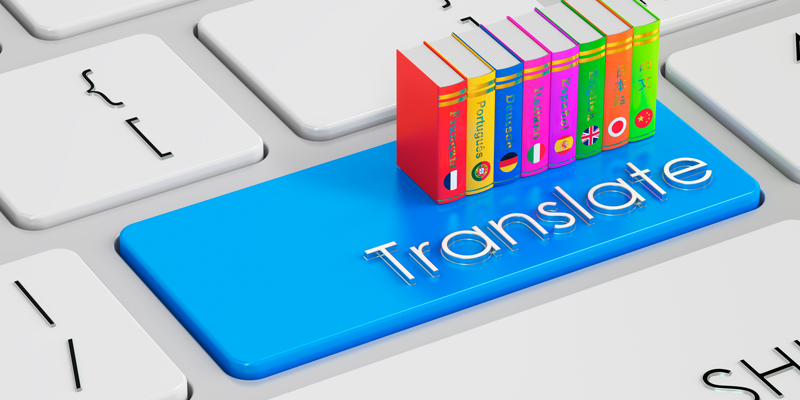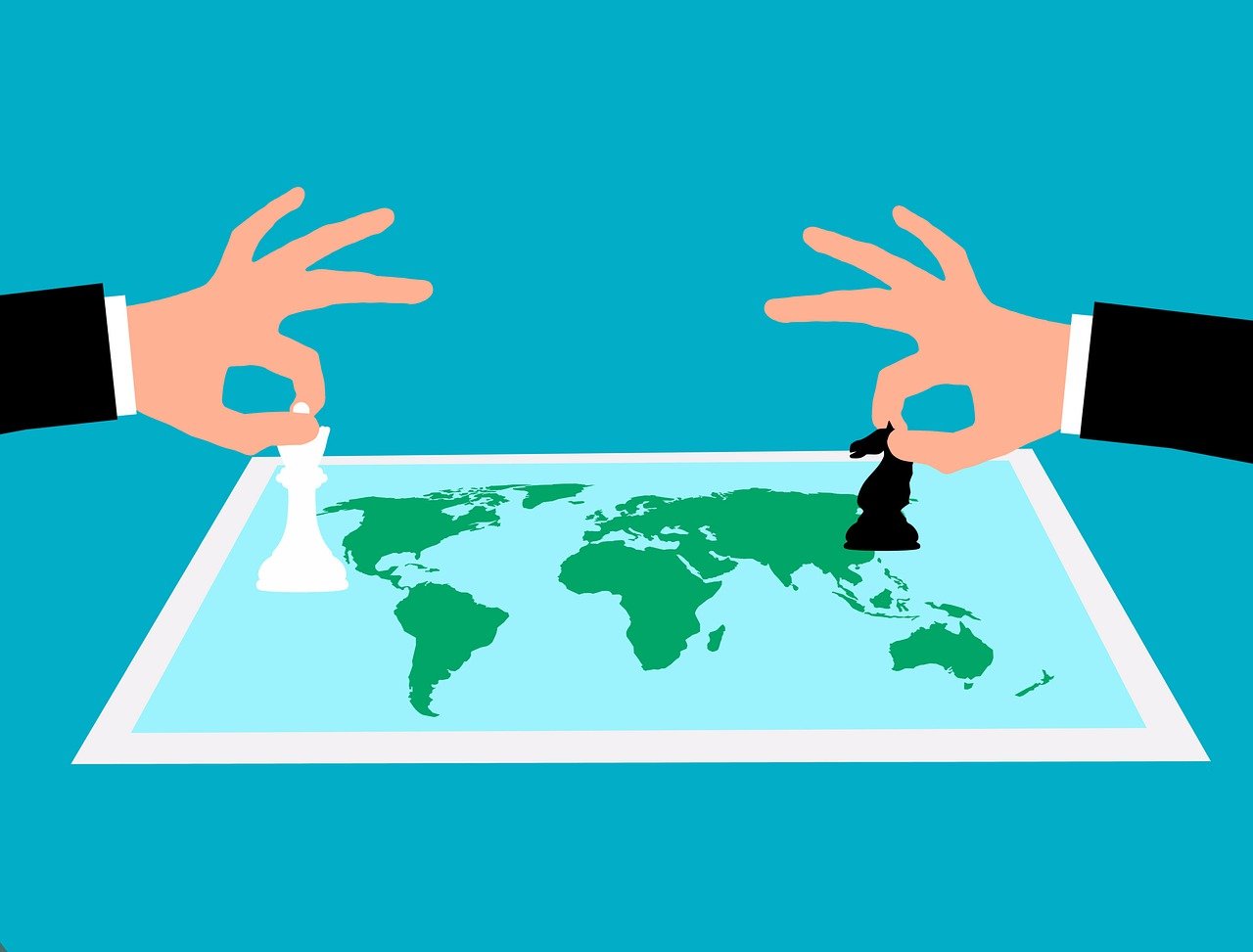
In our interconnected global society, effective communication is paramount. The ability to convey ideas, information, and messages across linguistic and cultural barriers is crucial for businesses, individuals, and organizations alike. This is where translation companies step onto the stage, playing a pivotal role in breaking down language barriers and fostering cross-cultural understanding.
The Vital Role of Translation Companies
- The Essence of Translation Companies:
Translation companies serve as linguistic bridges, facilitating communication between individuals and entities that speak different languages. Their core function is to convert written or spoken content from one language into another while ensuring accuracy, context preservation, and cultural relevance. The goal is not merely linguistic conversion but rather to convey the intended message with precision and authenticity.
-
Versatility of Translation Services:
Translation companies offer a wide array of services catering to diverse needs. These services encompass document translation, website localization, audio and video transcription, interpretation, and more. The versatility of these offerings allows businesses and individuals to navigate the intricacies of global communication seamlessly.
3. Expertise in Specialized Fields:
Translation is not a one-size-fits-all endeavor. Different industries have unique jargon, terminology, and contextual nuances that require specialized knowledge. Translation companies often have teams of experts in various fields such as legal, medical, technical, and scientific translation. This ensures that the translated content is not only linguistically accurate but also contextually precise.
- Technological Integration:
In the digital age, technology plays a significant role in the translation process. Translation companies leverage cutting-edge tools such as computer-assisted translation (CAT) software, machine translation, and artificial intelligence to enhance efficiency and consistency. While these tools are powerful aids, human translators remain essential for nuanced understanding, cultural sensitivity, and creative adaptation.
Effective translation goes beyond converting words from one language to another. It involves understanding and respecting cultural nuances, idioms, and customs. Translation companies employ linguists who are not just bilingual but also well-versed in the cultural context of both the source and target languages. This cultural sensitivity ensures that the translated content is not only accurate but also culturally appropriate.
- Quality Assurance:
Maintaining the highest standards of quality is a hallmark of reputable translation companies. Rigorous quality assurance processes, including proofreading, editing, and multiple rounds of review, are undertaken to ensure that the final product meets the client’s expectations. This commitment to quality is essential in professional settings where accuracy is non-negotiable.
- Confidentiality and Security:
Given the often sensitive nature of the content being translated, translation companies prioritize confidentiality and data security. Clients need assurance that their information is handled with the utmost care and that stringent measures are in place to safeguard against unauthorized access or data breaches.
- Global Expansion and Business Growth:
For businesses eyeing international markets, translation services are indispensable. A well-translated and culturally adapted website, marketing materials, and product documentation can significantly impact a company’s success in a foreign market. Translation companies contribute to global business growth by facilitating effective communication and helping businesses navigate the complexities of diverse linguistic landscapes.
- Educational and Cultural Exchange:

In the academic and cultural realms, translation plays a crucial role in facilitating the exchange of ideas, literature, and knowledge across borders. Translation companies contribute to the dissemination of academic research, literary works, and cultural artifacts, fostering a richer global intellectual and artistic tapestry.
- Challenges in Translation:
While the benefits of translation are immense, it’s essential to acknowledge the challenges. These can range from linguistic nuances that defy easy translation to the ever-evolving nature of languages and the need for constant adaptation. Additionally, the ethical considerations surrounding translation, such as the potential for bias or the challenge of conveying the emotional tone of a message, are areas that translation companies navigate with care.
Important facts about the Tapestry of Communication
- Adapting to Technological Advancements:
Translation companies are quick to embrace technological advancements that enhance their capabilities. Artificial intelligence and machine learning, for instance, have revolutionized the translation landscape. These technologies assist human translators by providing tools for more efficient workflows, terminology consistency, and even aiding in the initial stages of translation. However, it’s crucial to note that machines lack the nuanced understanding, cultural sensitivity, and creativity that human translators bring to the table.
- Global Communication Trends:
In an era where digital communication is at the forefront, translation companies are adapting to meet the demands of various communication channels. Social media, for example, requires a different approach to translation, considering character limits, hashtags, and the informal language often used. Translation companies must navigate these trends to ensure that their services align with the evolving ways in which information is shared globally.
- Economic Impact and Market Access:
For countries and businesses aiming to access new markets, translation services act as a gateway. The economic impact of translation is significant, as it facilitates trade, business partnerships, and international collaboration. By breaking down language barriers, translation companies contribute to economic growth by enabling smooth communication between entities from different linguistic backgrounds.
In legal contexts, precision is paramount. Translation companies specializing in legal translation must navigate complex terminologies, ensuring that legal documents maintain their intended meaning across languages. Any ambiguity or error in legal translation can have serious consequences. Translation companies often work with legal experts and linguists to guarantee accuracy and compliance with legal requirements.
In the healthcare industry, accurate communication is a matter of life and death. Translation companies play a crucial role in translating medical documents, patient records, and pharmaceutical information. This ensures that healthcare professionals can access vital information irrespective of language barriers, contributing to improved patient care and safety on a global scale.
- Environmental and Scientific Communication:
In the realms of environmental science and scientific research, translation companies facilitate the global exchange of knowledge. Climate change reports, research papers, and scientific findings need to be accessible worldwide. Accurate translation in these fields is not only about language; it’s about conveying complex concepts and technical details accurately to a diverse audience.
- Humanitarian Aid and Crisis Communication:
During crises, whether natural disasters or pandemics, effective communication is paramount. Translation companies contribute by rapidly translating crucial information for affected populations. This includes safety instructions, medical guidelines, and aid distribution details. The timely dissemination of accurate information can make a significant difference in mitigating the impact of a crisis.
- E-Learning and Educational Resources:
The rise of online education has further increased the demand for translation services. Educational institutions and e-learning platforms utilize translation companies to make educational resources accessible globally. This not only includes translating course content but also providing multilingual support for communication between educators and students from different linguistic backgrounds.
- Literary Translation and Cultural Exchange:
Literature is a reflection of culture, and literary translation allows for the exchange of ideas and stories across borders. Translation companies specializing in literary translation contribute to the enrichment of cultural diversity by making literature from different languages accessible to a broader audience. This fosters a deeper understanding of diverse perspectives and narratives.
The field of translation is dynamic, with languages evolving, new terminologies emerging, and cultural shifts influencing communication. Translation companies invest in the continuous learning and professional development of their linguists. This commitment ensures that their teams stay abreast of linguistic changes, technological advancements, and industry-specific updates.
Conclusion:

In a world where communication knows no borders, translation companies emerge as unsung heroes, weaving the fabric of understanding across diverse languages and cultures. Their role goes beyond mere language conversion; it encompasses the art of preserving context, ensuring accuracy, and fostering cross-cultural harmony. As globalization continues to shape our interconnected world, the importance of translation companies in facilitating effective communication and bridging linguistic gaps cannot be overstated.
